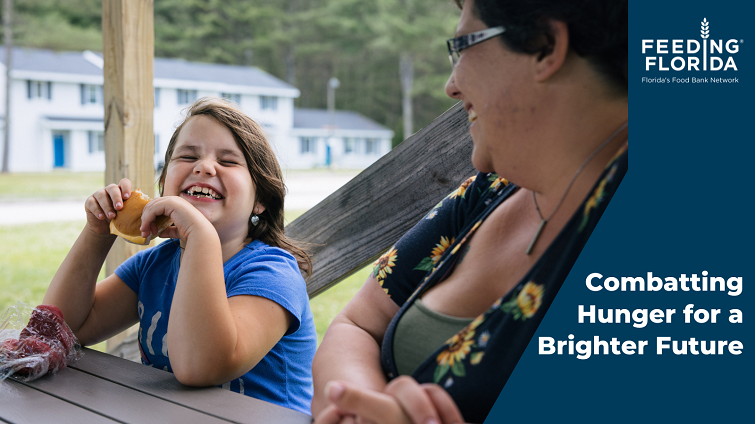It's back-to-school season – a time of excitement and anticipation for many children. New friends, new teachers, and new challenges await! However, for some kids, going back to school also means a stability they don’t always have at home – it means more food, healthy meals, and a temporary support for food insecurity they live with every day. The struggle to find nutritious meals on a regular basis can hinder their ability to focus on education and enjoy the opportunities that come with returning to the classroom, which is why back-to-school meal programs and school pantries make a huge difference in the lives of families and children experiencing hunger.
The Challenge of Food Insecurity
Food insecurity remains a harsh reality for millions of families across the United States, and Florida is no exception. For over 600,000 Florida children, the lack of consistent access to nutritious food affects their physical health and has long-lasting consequences on their cognitive development and academic performance. When children face hunger, they often experience difficulty concentrating, reduced learning abilities, and lower grades. Without the support of federal programs and the charity network that supports school meals, backpack programs, and after-school meals, this would be a daunting time for these students, worrying about where their next meal will come from instead of focusing on their studies.
Access to Nutritious Foods
Feeding Florida’s food banks are dedicated to ensuring that families and children across the state have access to fresh produce and nutritious meals. By collaborating with local partners, area food pantries, food retailers, and donors, we distribute millions of pounds of food every year to those in need.
Feeding Florida is proud to collaborate alongside federal initiatives to ensure no child goes hungry before, during, or after school. For example, the National School Lunch Program (NSLP) is a federal program that provides low-cost or free lunches to eligible students in public and nonprofit private schools. The goal of NSLP is to promote the health and well-being of children by offering balanced and nutritious meals, and ensuring that students have access to healthy food options during the school day. Eligibility is based on household income and family size. Students from families with incomes at or below 130% of the federal poverty level are eligible for free meals, and those with incomes between 130% and 185% are eligible for reduced-price meals. To learn more about the NSLP program visit: https://www.fns.usda.gov/nslp
NSLP isn’t the only program available across the country, (and our sunshine state) aimed at making sure students are taken care of. In fact, this next one, focuses on the most important meal of the day, breakfast! The School Breakfast Program provides low-cost or free breakfasts to eligible students in participating schools. Similar to NSLP, eligibility for SBP is based on household income and family size. It provides free or reduced-price breakfasts to students from qualifying households. To learn more about SBP visit: https://www.fns.usda.gov/sbp/school-breakfast-program
Rounding out the federal programs aimed at ensuring no student goes hungry, is FFVP, which stands for Fresh Fruit and Vegetable Program. And yes, you guessed it, FFVP is a federal program that provides fresh fruits and vegetables to elementary schools with a high percentage of low-income students. To learn more about FFVP visit: https://www.fns.usda.gov/ffvp/fresh-fruit-and-vegetable-program
Taking Action
Through the efforts of Feeding Florida, our network, and the support of federal programs like the ones above, children facing food insecurity can experience the joy of starting a new school year with hope and optimism. With full bellies and the nutrition they need, they can concentrate on their studies, build friendships, and participate in extracurricular activities, paving the way for a brighter future.
Together, we can ensure that every child has the opportunity to succeed and flourish in school and beyond. To get involved, help students in your area, and find the nearest food bank to you, visit: https://www.feedingflorida.org/feeding-florida/florida-food-banks.


